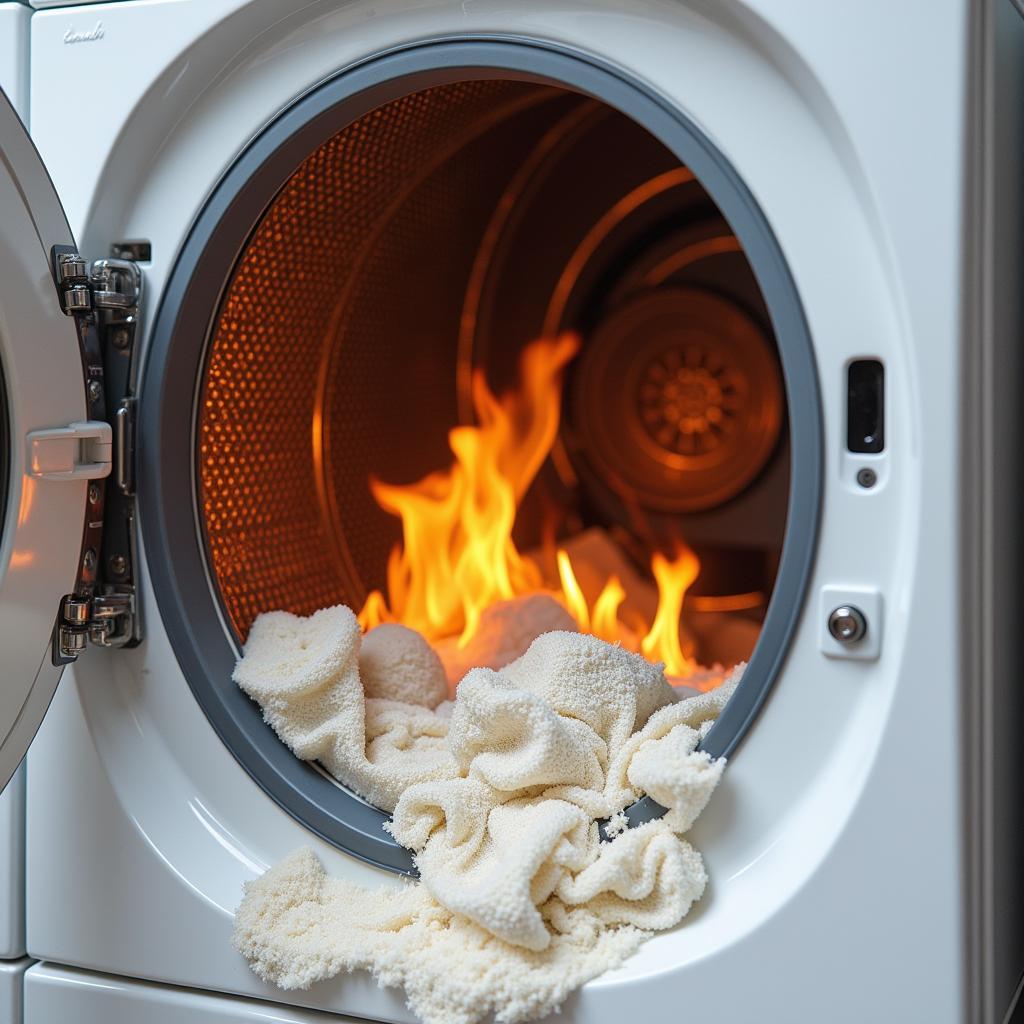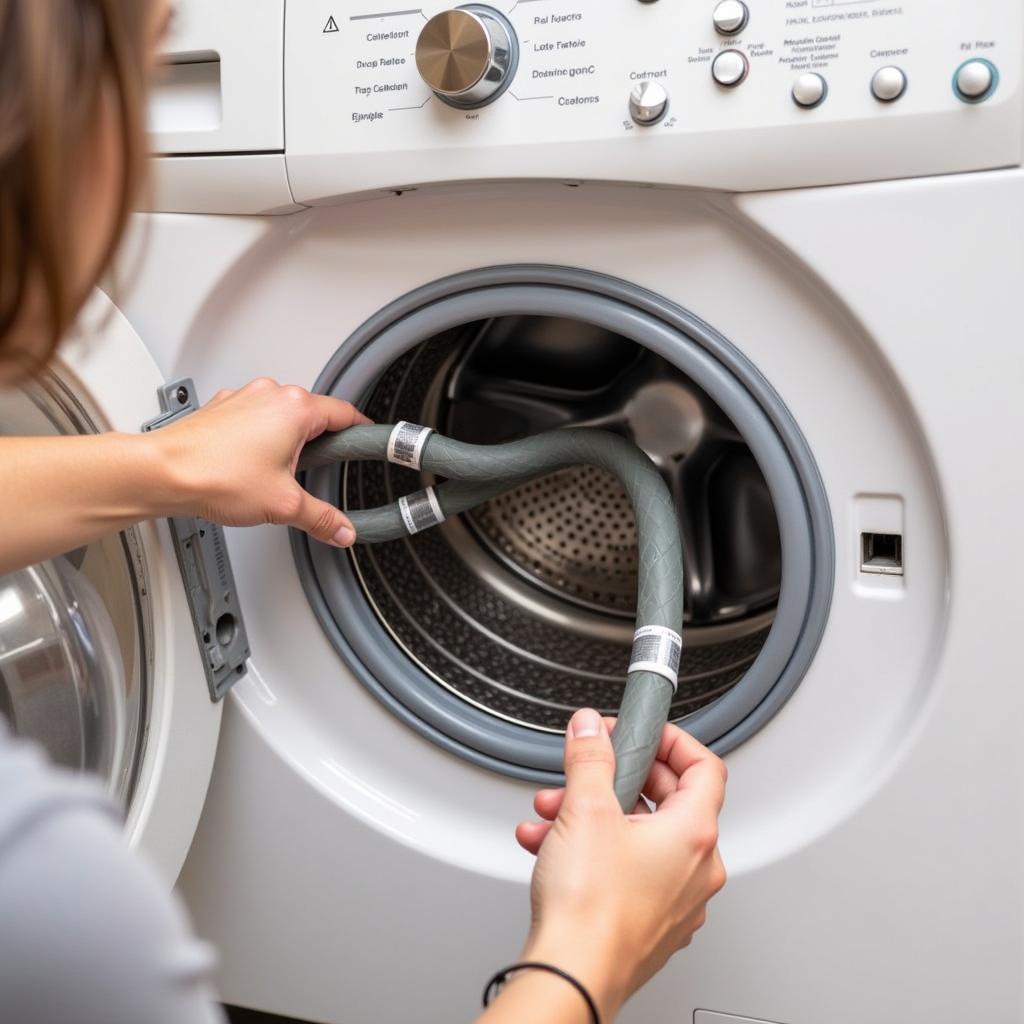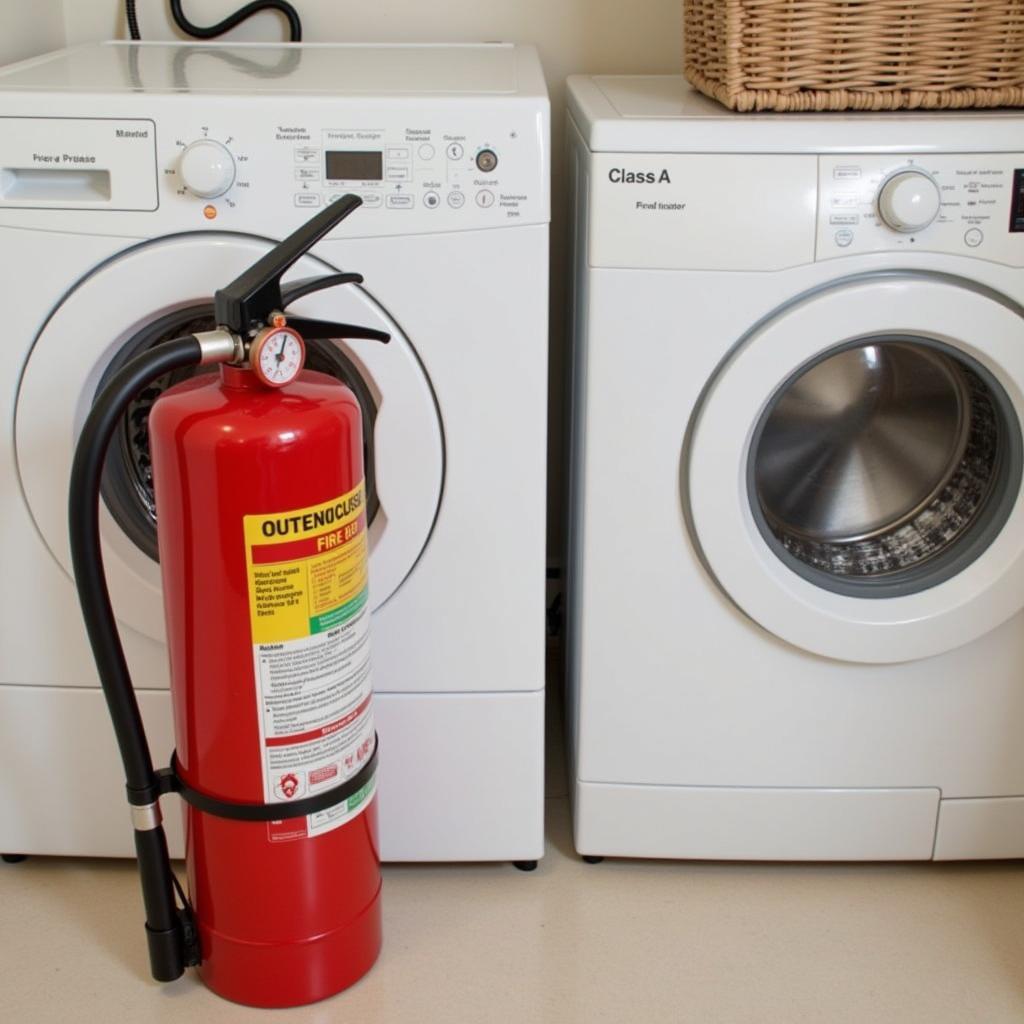Preventing Washing Machine Fires: A Comprehensive Guide
October 30, 2024A Washing Machine Fire can be devastating, causing significant property damage and even endangering lives. Understanding the causes and taking preventative measures is crucial to keeping your home safe. This guide explores everything you need to know about washing machine fires, from common causes to preventive maintenance and what to do in case of a fire.
Common Causes of Washing Machine Fires
Several factors can contribute to washing machine fires, ranging from mechanical malfunctions to improper use. Here are some of the most common culprits:
- Lint buildup: One of the most frequent causes is the accumulation of lint, especially in gas-powered dryers. Lint is highly flammable and can easily ignite when exposed to a heat source.
- Electrical faults: Damaged wiring, loose connections, and faulty heating elements can create sparks and overheating, leading to fires.
- Mechanical failures: Worn-out bearings, belts, and other moving parts can generate friction and heat, potentially igniting nearby flammable materials.
- Improper installation: Incorrectly installed gas lines or electrical connections can increase the risk of leaks and sparks.
- Overloading or improper use: Overloading the machine or washing inappropriate items, such as those soaked in flammable substances, can create dangerous conditions.
 Lint Trap Fire Hazard
Lint Trap Fire Hazard
Preventive Maintenance: Protecting Your Home and Family
Regular maintenance is key to minimizing the risk of a washing machine fire. Following these simple steps can significantly improve safety:
- Clean the lint trap frequently: After each use for dryers, and regularly for washing machines, remove lint from the trap.
- Inspect hoses and connections: Check for cracks, bulges, or leaks in the water supply and drain hoses. Replace any damaged hoses immediately.
- Avoid overloading: Don’t overfill the washing machine or dryer. Allow for proper air circulation and water distribution.
- Clean the dryer vent: At least annually, clean the dryer vent to remove lint buildup and ensure proper airflow. Consider using a professional dryer vent cleaning service.
- Follow manufacturer’s instructions: Adhere to the manufacturer’s guidelines for installation, use, and maintenance of your appliance.
- Don’t leave the machine unattended: Never leave the washing machine or dryer running while you’re away from home or asleep.
 Checking Washing Machine Hoses for Damage
Checking Washing Machine Hoses for Damage
What to Do if a Washing Machine Catches Fire
Knowing how to react in case of a fire is crucial:
- Turn off the power: If safe to do so, disconnect the appliance from the power source.
- Call emergency services: Immediately call 911 or your local fire department.
- Evacuate: Get everyone out of the house immediately and do not re-enter until the fire department gives the all-clear.
- Use a fire extinguisher: If the fire is small and contained, use a fire extinguisher rated for Class A fires (ordinary combustibles).
Remember, your safety is paramount. Never attempt to fight a large fire or put yourself at risk.
You might enjoy visiting the neighborhood laundry, where they take safety seriously.
What are the main causes of washing machine fires?
Lint buildup, electrical faults, mechanical failures, improper installation, and overloading are the primary causes of washing machine fires.
How can I prevent a washing machine fire?
Regularly clean the lint trap, inspect hoses and connections, avoid overloading, clean the dryer vent, and follow the manufacturer’s instructions.
Why is it important to clean the lint trap?
Lint is highly flammable, and a buildup in the trap can easily ignite.
How often should I clean the dryer vent?
At least annually, or more frequently if you notice reduced drying efficiency.
What type of fire extinguisher should I use for a washing machine fire?
A Class A fire extinguisher is suitable for fires involving ordinary combustibles like fabric and lint.
 Fire Extinguisher Placement for Laundry Room Safety
Fire Extinguisher Placement for Laundry Room Safety
Conclusion
Washing machine fires are preventable. By understanding the common causes and taking proactive steps, you can protect your home and family from this potential hazard. Regular maintenance, proper usage, and knowing what to do in case of a fire are essential for safety. Don’t wait for disaster to strike – take action today. Remember to check out our fantastic character mermaid tails for a bit of fun.
FAQ
- Q: Can a washing machine catch fire even if it’s turned off? A: Yes, if there are underlying electrical faults.
- Q: Should I hire a professional to clean my dryer vent? A: It’s recommended, especially for longer vents.
- Q: Are newer washing machines less prone to fires? A: Newer models often have safety features, but regular maintenance is still crucial.
- Q: What should I do if I smell burning rubber or plastic near my washing machine? A: Immediately turn off the appliance and unplug it. Contact a qualified technician to inspect the machine.
- Q: Are there any specific types of clothing that are more likely to cause fires in the dryer? A: Items soaked in flammable substances like gasoline or oil should never be put in the dryer.
For support, please contact us: Phone: 0915117113, Email: [email protected] Or visit us at: To 3 Kp Binh An, Phu Thuong, Viet Nam, Binh Phuoc 830000, Viet Nam. We have a 24/7 customer service team.